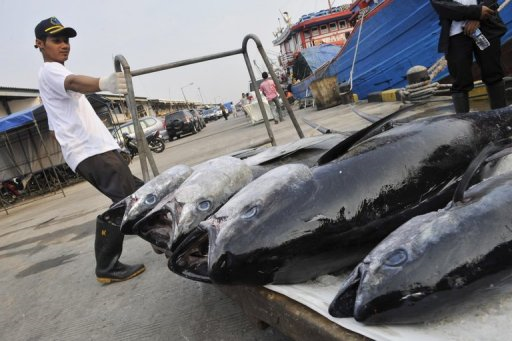Fading fish stocks driving Asia sea rivalries
By Pascale Trouillaud
November 16, 2010 Beijing (AFP) Nov 16, 2010 – Maritime incidents in the East and South China Seas, such as the one that sparked a major row between China and Japan, could intensify in a fight over dwindling fish stocks, experts say. Past incidents have been sparked by regional competition for strategic sea routes and the search for oil, but fishermen from Japan, China, Taiwan, South Korea, the Philippines and Vietnam are increasingly heading outside their own territorial waters — and into disputed areas — to earn a living. Beijing and Tokyo are still at odds two months after a Chinese trawler collided with two Japanese coastguard vessels near a contested island chain in the East China Sea — seen as a harbinger of further conflicts. “Fish stocks are depleting very rapidly in eastern Asia and there is a scramble for fish,” Jonathan Holslag, a researcher at the Brussels Institute of Contemporary Chinese Studies, told AFP. “We have gas and oil people involved as well and this is politically the most sensitive issue, but… fishing companies bring a greater risk of incidents or tensions,” Holslag added. The industry — which is vital in Japan, the region’s key consumer — has the “great potential of becoming a political problem,” he warned. … Fish has become “a kind of new gold in Asia”, he said. … “China is consuming more and more fish, and global fish stocks are down, especially in that region — it makes perfect sense that Chinese boats are going to go farther and farther” and into disputed waters, he added. …
